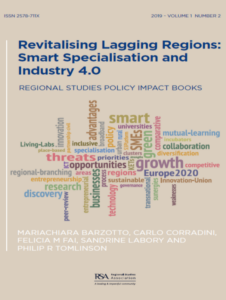Engaging with and Writing for Policymaker Audiences

By Mariachiara Barzotto and Phil Tomlinson, University of Bath, UK
The ability to write for and engage with policymaker audiences has become an essential skill for researchers to acquire (and develop). This partly reflects demands from external funding bodies for new research that has real societal impact and may only be facilitated through policy changes. In addition, universities are increasingly being tasked to focus on their civic activities, with academics being encouraged to liaise closely with regional stakeholders and policymakers on issues of local concern.
While policy engagement may add new challenges and workload pressures for researchers, it can be intellectually rewarding. Policy engagement offers opportunities to publicly showcase research, opening it up to wide public discourse, with the possibility that it can shape future policy – research with impact. The types of policy publications include policy briefs, policy reports and policy-facing books. Twitter is also a helpful medium in which to engage. Researchers are increasingly using the platform to offer short explanations (with policy implications) of their research papers, often to good effect.
The Regional Studies Association (RSA) and its members have a long-standing tradition of policy engagement, with extensive links and established relationships with policymakers at all levels – regional, national, international and supra-national. Policy impact lies within the DNA of the RSA. The RSA Policy Expo Grant Scheme – launched in 2017 – is explicitly designed to offer (and encourage) members (working in teams) an opportunity to undertake a piece of policy-orientated research. Two key deliverables are required: a policy-facing book and an article for Regional Studies Regional Science.
Yet explaining complex issues to policymakers often poses new questions for researchers, especially those long-versed in academic writing. Drawing upon our experience as part of the first RSA Expo, we offer some valuable tips and guidance in engaging with and writing for policymakers.
Understand your Audience and Prior Engagements
The first step is to identify and target your policy audience. To do so, you should establish the actors involved in the political process and build a deep understanding of their agendas. An effective technique is following national (and European) Parliament (or equivalent bodies) debates online and politicians’ social media accounts.
Policymakers can be elected officials, but your target may also be civil servants or specially employed policy advisors (SPADs). They may work at different levels of government (regional, national or supra-national) and have differing levels of experience, expertise and time horizons. Politicians have an eye on elections, and the stage of the electoral cycle may affect the impact of your research message. The effect is most likely when politicians have a clear mandate and wish to leave a legacy. Civil servants are usually in post for the longer term, and straggle with the intricacies of policy implementation and are more likely to value your contribution as a critical friend.
Ideally, you will build a prior relationship with your target policymaker. Doing so will allow you to better tailor the information and critical policy message you wish to convey. For early career researchers especially, developing such relationships can be difficult. Fortunately, the RSA are excellent at opening doors and connecting researchers with policymakers through its conferences, networks and other links. Nevertheless, it will still be critical to get the policymaker’s attention. You need to explain why your research is relevant to the policymaker, why they should care and what their incentives are. For instance, can you connect your research to issues in the region (or constituency) the policymaker represents, or does your research deal with a topic they have spoken publicly about, or does it raise salient issues that are of matter of current government policy or concern (for example, the ‘levelling up’ agenda in the UK).
Policy Writing
Research and academic writing are often lengthy processes. Researchers expend much time emphasising their research’s scientific technicalities and methodological rigour and typically qualify their results with caveats. Time horizons for policymakers are different. Policymakers are busy, face competing demands on their time, and usually want quick results. Moreover, they often receive conflicting sources of information, which can be challenging to disentangle, especially as they are unlikely to have specialist subject knowledge. Policymakers do not want to be bombarded with academic jargon, overly complex arguments and long methodological explanations. They want to receive research policy documents written with a clear message backed up with reliable evidence and sources, concise descriptions, timely policy relevance and are fascinating to read.
Researchers should be aware of these differences in writing for policymaker audiences and adapt accordingly. It would help if you essentially became ‘bilingual’, speaking both the language of science and policy. Whether writing a policy brief or policy-facing book (such as the Policy Expo), the advice is the same. The researcher should aim to present clear messages with a purpose, summarising the research, the principal results, implications and limitations coherently and consistently. It should show the critical evidence from the study and offer a course of action (or a set of recommendations). Be clear on the uncertainties – which are not welcomed in the policymakers’ world of – the research state of the art. Information should be presented in short sentences/paragraphs and in an easy-to-read style, which remains professional in presentation but eschews technical jargon. It should bring out the critical policy points or ‘policy takeaways’.
For more comprehensive policy reports and even briefs, you should look to include an Executive Summary and a Key Recommendations Section. If you cannot avoid including some technical jargon, be sure to provide definitions or – especially for policy-facing books – a Glossary of key terms. Include details of your sources so that readers have opportunities to follow up on your study.
Your document should also be visually engaging and, where appropriate, use infographics, inset boxes, highlighted text, graphs/diagrams and even photographs (so long as you have permission to re-use/publish them). Does your research say something unexpected, and could you frame some of your arguments around an exciting and compelling real-world story? If so, highlight these since they are more likely to attract attention and generate impact.
Throughout drafting your policy document, ask yourself whether a policymaker will understand or follow your arguments. Indeed, it is a good idea to share a draft of your paper – or even just a chapter – with policymakers/practitioners (at different levels; regional/national/supranational) to obtain user feedback. This will help to assist in your policy writing. Finally, for policy-facing books, seek out Forwards from respected policymakers/practitioners and Cover endorsements – these will add to the credibility of your message.
The UK Parliament has further guidance on writing policy briefs, which is worth checking out.
Engaging Policymaker Audiences
Having written your policy document, you must consider disseminating it to policymakers and other interested parties. Social media platforms such as Twitter are a valuable and quick way to share your work. Similarly, you can post or email copies of your policy document to your targeted policymaker audience.
More formally, it may be possible for a public launch of your policy brief or book with your target policymaker. The ability to do this largely depends upon your earlier relationship building. Our RSA Policy Expo examined the challenges faced by lagging regions in participating in the EU’s RIS3 programme and explored how policies might be better tailored to ensure they could succeed. For public dissemination, the RSA assisted us in leading a general session at the EU’s European Week of Regions and Cities 2018 in Brussels. We successfully experimented with interactive technologies to facilitate audience participation; you can read more about that here. A year later, the RSA helped to organise our book launch at the EU’s Joint Research Centre in Seville. Subsequently, the JRC has become interested in the policy issues from our book and has launched a new research programme building on our research.
Regional Studies Policy Impact Books, Volume 1, Issue 2 (2019)
Reading suggestion: Revitalising Lagging Regions: How to improve the EU’s Innovation Programme
